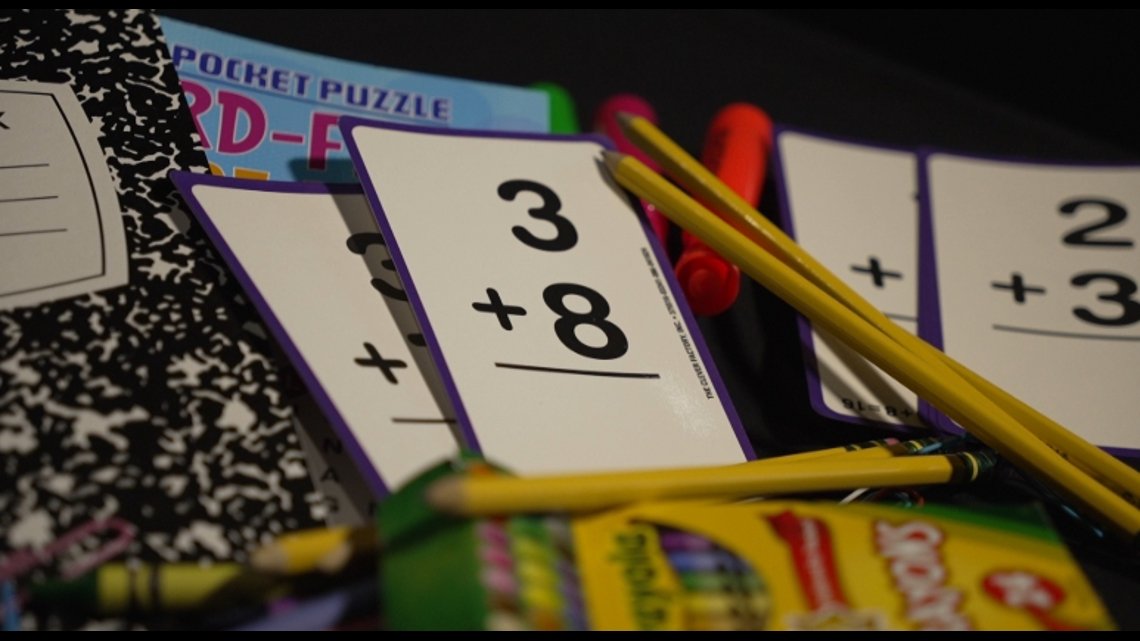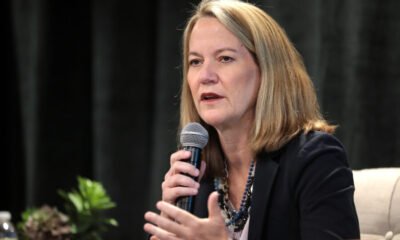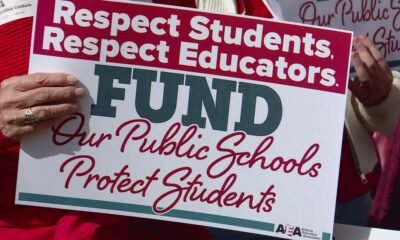arizona
Arizona’s Education Crisis: Tackling the Challenge of Low Test Scores

Nicole Furuta’s move to Arizona brought her face to face with a troubling reality regarding the state’s education system. Initially, she was aware of the challenges, but the extent of the difficulties her children faced was surprising.
“We were used to a 20:1 ratio,” she explained. “Or a 20:2 with a teacher’s assistant. Here, that number is closer to 30 or even beyond.”
Arizona’s education system consistently ranks low nationally, drawing criticism for inadequate teacher pay, student spending, and poor test scores.
“Sometimes it feels like the kids are left behind,” Furuta added, highlighting the challenges teachers face in managing large classrooms.
Investigations by the 12News I-Team reveal patterns explaining Arizona’s educational shortcomings. Data from the largest school districts in Maricopa County indicates that in 2024, over half the students in each district failed to achieve proficiency in essential subjects like English Language Arts and math.
Notably, private schools are not included in these assessments, complicating comparisons with district and charter schools. Without mandatory state testing for private institutions, the issue is further muddled.
The I-Team gathered insights through an informal survey, receiving feedback from nearly 80 parents and educators.
Furuta’s experience echoes a common concern: the teaching methods may not adequately support children’s learning. Her own children, one in fourth grade and another in seventh, excel in reading but struggle with math.
“The curriculum feels different from what I learned, which makes it hard for me to provide help,” she noted.
Despite these frustrations, responses varied. In North Phoenix, parent Craig Beckman pointed out that concerns about school safety and social wellness often overshadow worries about academic performance.
“School is about more than just test scores,” Beckman stated. “A poor test day doesn’t reflect a student’s capabilities.”
Beckman associated external factors, such as community changes and access to basic needs, with test score fluctuations. He urged looking beyond public schools for answers regarding academic struggles.
Other educators, like a teacher from the East Valley who requested anonymity, observed a disturbing trend: decreasing interest in reading as students age.
“The focus on test scores is an issue, but ultimately, relationships between parents, teachers, and students are crucial for success,” he emphasized.
The survey indicated that problems are multifaceted, with factors such as increased screen time, funding issues, and growing classroom sizes contributing to academic challenges.
“Not every child has the same learning style,” Furuta noted. “We may need tailored approaches to individual needs, but funding for that is lacking.”
Dr. Curtis Finch, Superintendent of Deer Valley Unified School District, recognized severe funding issues. “Arizona provides the least financial support in the nation. We’re paying the consequences of that reality,” he stated, pointing to the need for systemic changes.
Despite funding shortfalls, Finch emphasized the importance of culture in education. He believes that commitment from educators and staff can transcend financial limitations.
In the 2024 academic year, Deer Valley reported a graduation rate of over 95%. Finch attributed some successes to adaptive curriculum strategies aimed at helping struggling students catch up.
However, challenges remain. Finch mentioned how programs like the Empowerment Scholarship Account (ESA) can impact public school resources, drawing funding away without accountability.
Arizona Superintendent of Public Instruction, Tom Horne, expressed a contrasting view. He believes that low test scores stem from issues with teacher performance rather than funding alone.
“Our priority is addressing these low scores,” Horne asserted, emphasizing that economic factors should not hinder academic improvement. He is pushing for legislative support to raise teacher salaries and increase training availability.
In conclusion, parents like Furuta continue to advocate for a better educational future. “Our kids deserve better outcomes,” she remarked, emphasizing a need for urgency in tackling the issues facing Arizona’s education system.

















